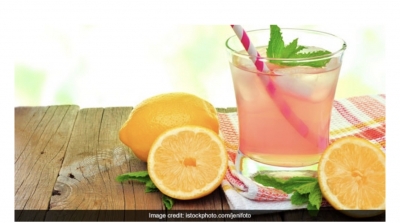Nmaduchidiebere
Others : I Am A Monogram Embroider
Wants to meet Business Partners : Funny And Intelligent
Articles
347
Followers
17
profile/70948593195F-8AA7-41C8-8563-86DEB0543A83.jpeg
Nmaduchidiebere

This Pink And Peppy Immunity-Boosting Juice Requires Only These Three Fruits!
~0.9 mins read
As you spend more and more time indoors, it is perhaps a good time to have a look at your kitchen and treasure it holds. Our fruit baskets are packed with juicy and delectable fruits that could do wonders for our overall health, skin and weight. Additionally, they could also perhaps prove beneficial for your immunity. According to experts, for maximum benefits, you should eat a range of fruits to ensure intake of a range of vital antioxidants. While you should ideally eat your fruits whole, you could also blend them together in a refreshing juice. Make sure you juice them at home. Store-bought juices often contain hidden sugar. This pink lime juice recipe by Mumbai-based blogger Alpa Modi packs the goodness of not one or two, but three fruits. Yes, you heard us! Combining immunity-boosting properties of pomegranate, orange and lemon, this juice could serve as a delectable drink that helps ward off risk of infections, cold, cough and flu. All these fruits are a good source of vitamin C and antioxidants that help fight free radical activity, boost immunity and fortify you from within. The recipe was posted on the YouTube Channel 'Something's Cooking With Alpa'. You can eliminate the sugar from the recipe as the pomegranate seeds and orange juice come with their own natural sweetness. You could also leave out the ice as it may lead to cough and sore throat.
profile/70948593195F-8AA7-41C8-8563-86DEB0543A83.jpeg
Nmaduchidiebere

Sonam Kapoor Reveals How Giving Up Sugar Because Of PCOS Changed Her Life
~1.1 mins read
Advertisement

Link socials
Matches
Loading...
